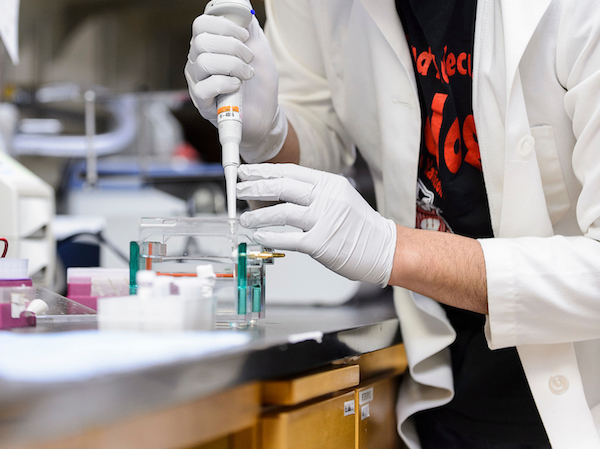Tiny mealworms may hold part of the solution to our giant plastics problem. Not only are they able to consume various forms of plastic, as previous Stanford research has shown, they can eat Styrofoam containing a common toxic chemical additive and still be safely used as protein-rich feedstock for other animals, according to a new...
Science & Technology
Transformative Change Can Save Humans and Nature
The survival of Earth’s life is not a battle of humans versus nature. In last week’s Science, an independent group of international experts, including one from Michigan State University (MSU), deliver a sweeping assessment of nature, concluding victory needs both humans and nature to thrive. “Pervasive human-driven decline of life on Earth points to the...
Potentially Toxic Chemicals from LCDs in Nearly Half of Household Dust Samples Tested
Chemicals commonly used in smartphone, television, and computer displays were found to be potentially toxic and present in nearly half of dozens of samples of household dust collected by a team of toxicologists led by the University of Saskatchewan (USask). The international research team, led by USask environmental toxicologist John Giesy, is sounding the alarm...
Mobile Devices Blur Work and Personal Privacy Raising Cyber Risks
Organisations aren’t moving quickly enough on cyber security threats linked to the drive toward using personal mobile devices in the workplace, warns a QUT privacy researcher. Dr. Kenan Degirmenci from QUT’s Science and Engineering Faculty’s School of Information Systems said workers worldwide expected to take their work with them whenever and wherever. But he warned...
Meet the Early Internet’s Black ‘Vanguard’
Studying #BlackLivesMatter made Charlton McIlwain’s wonder about that movement’s digital predecessors. Did those 21st-century activists who turned to social media to bring attention to police brutality draw from an earlier playbook? And if so, who was the first to leverage the power of the internet in the pursuit of racial justice? The questions led McIlwain,...
Americans Maintain High Levels of Trust in Science
A new report analyzing decades of public opinion surveys reveals that the public’s trust in scientists has remained stable and high over decades. By various measures, Americans reported that they trusted scientists more than they trusted many other institutions and professions, including journalists, judges and Congress. That trust can affect how people interpret scientific information...
Trash Talk Hurts, Even When It Comes from a Robot
Trash talking has a long and colorful history of flustering game opponents, and now researchers at Carnegie Mellon University have demonstrated that discouraging words can be perturbing even when uttered by a robot. The trash talk in the study was decidedly mild, with utterances such as “I have to say you are a terrible player,”...
Should Scientists Change the Way They View (And Study) Same Sex Behavior in Animals?
Over the years, scientists have recorded same-sex sexual behavior in more than 1,500 animal species, from snow geese to common toads. And for just as long evolutionary biologists studying these behaviors have grappled with what has come to be known as a “Darwinian paradox”: How can these behaviors be so persistent when they offer no...
New Research Suggests Robots Appear More Persuasive When Pretending to Be Human
Recent technological breakthroughs in artificial intelligence have made it possible for machines, or bots, to pass as humans. A team of researchers led by Talal Rahwan, associate professor of Computer Science at NYU Abu Dhabi, conducted an experiment to study how people interact with bots whom they believe to be human, and how such interactions...
Putting a Conservation Finger on the Internet’s Pulse
Scientists from the University of Helsinki have figured out how to mine people’s online reactions to endangered animals and plants, so that they can reduce the chance of pushing species toward extinction. When the last male northern white rhinoceros died in March 2018, online news printed obituaries, and millions of people grieved on social media....










